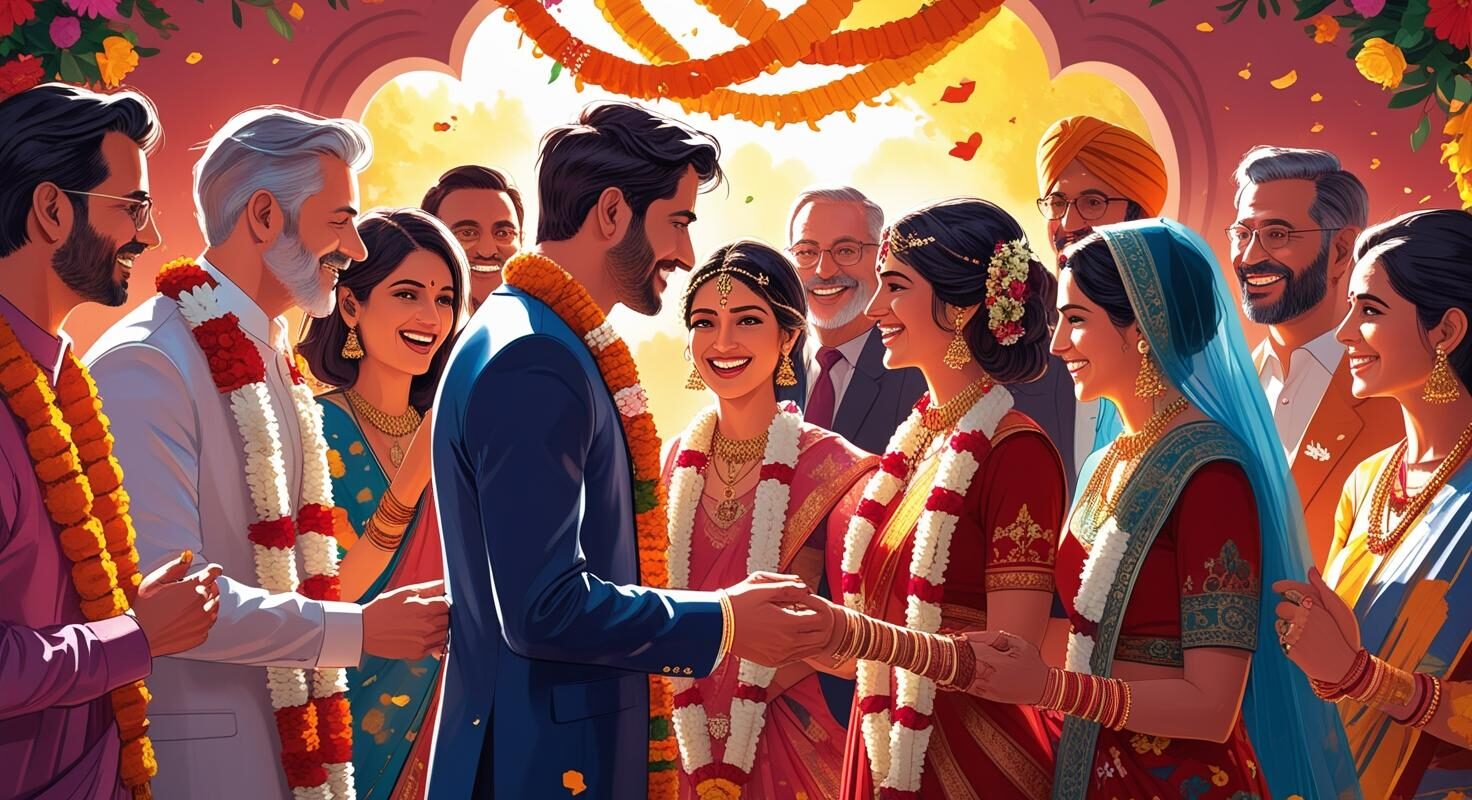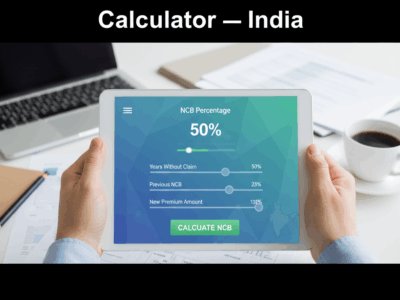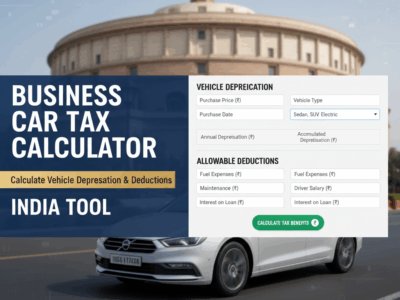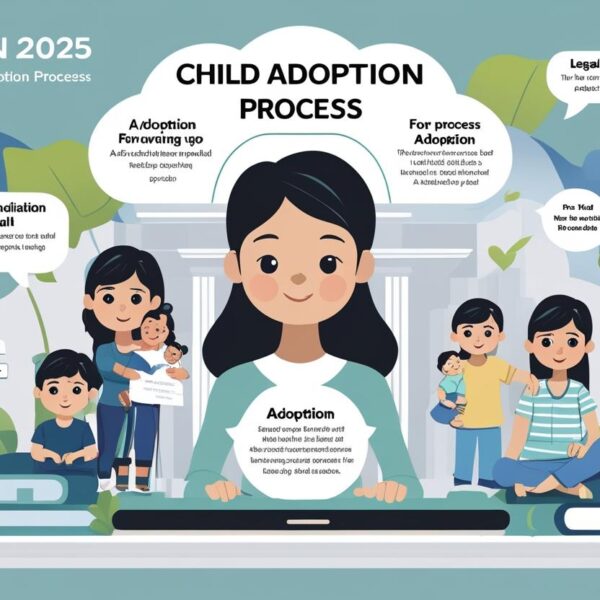What the Law Says in 2025
Navigating interfaith marriage in India can be complex. This guide provides a clear overview of the legal routes, processes, and safeguards in place as of 2025, based on current laws and judicial pronouncements.
Quick Guide: What's Your Path?
Answer a few questions to find the most relevant information for your situation.
1. Do you wish to avoid religious conversion for your marriage?
1. Two Basic Legal Routes
In India, interfaith couples primarily have two legal avenues for marriage:
| Route | Key Statute | Do you have to convert? | Typical Hurdles |
|---|---|---|---|
| Civil Marriage | Special Marriage Act (SMA), 1954 | No | 30-day public notice; possible objections; some officers ask for extra papers |
| Religious Ceremony + Registration | Personal-law statutes (e.g., Hindu Marriage Act, Muslim Nikah) plus state anti-conversion laws | Yes, if the partners must belong to the same faith under that personal law | Prior declarations and waiting periods in 12 states with anti-conversion acts; risk of police enquiries |
Note: Civil marriage under the Special Marriage Act is overwhelmingly chosen by interfaith couples today because it avoids conversion, keeps personal identities intact, and is recognised across India and abroad.
2. Step-by-Step Process under the Special Marriage Act (SMA)
The SMA provides a clear, secular framework for interfaith marriages:
- Residency Requirement: At least one partner must have lived 30 days in the district where the notice is filed.
- Notice of Intended Marriage (Form I): This is lodged with the Marriage Officer along with proof of age, address, photos, and marital-status affidavits.
- Public Display & Objection Window (30 days): The notice is publicly displayed. Any person may object on limited grounds (age, existing spouse, prohibited degrees). The officer must decide on the objection within 30 days.
- Solemnisation & Three Witnesses: After the waiting period, both partners make the statutory declaration (“I, A, take thee B …”) in the Marriage Office or any approved venue. The marriage certificate is issued immediately.
- Registration Abroad: Indian consulates can solemnise SMA marriages for two Indian nationals living overseas (under 2022 rules).
Documents You Will Usually Need:
- Passport/Aadhaar/Voter ID for age and address proof.
- Residence proof for the 30-day rule (e.g., rent agreement/utility bill).
- Passport-size photos (3 each).
- Affidavit of single status/divorce decree (if applicable).
- Witness ID proofs (3 adults).
3. Recent Judicial and Executive Safeguards (2024-25)
Recent legal developments have strengthened protections for interfaith couples:
- Supreme Court, June 2025: Re-affirmed that “the State cannot object to two consenting adults from different faiths marrying or co-habiting.” Bail was granted to a Muslim husband jailed under UP’s anti-conversion law.
- High Courts (Allahabad, Apr 2025 & Uttarakhand, Mar 2025): Directed police to protect threatened interfaith couples and ensure unobstructed SMA registration.
- State SOPs (Maharashtra, May 2025): Issued safe-house & special-cell guidelines for inter-caste/faith couples (Dial-112 tagging, 7-day threat reports, six-month shelter).
4. Where Anti-Conversion Laws Still Bite
While the SMA offers a conversion-free route, anti-conversion laws in some states can still pose challenges if conversion is involved:
- Twelve BJP-ruled states (e.g., UP, MP, Gujarat, Uttarakhand, Karnataka) criminalise or scrutinise conversion “by marriage.”
- The most stringent, Uttar Pradesh Amendment Act 2024, demands a 60-day prior declaration before conversion; violations carry up to 10 years’ jail.
- Interfaith couples using the conversion + personal-law route must follow these added steps or risk FIRs.
Work-around: Marry first under the SMA (no conversion), then opt for any religious ceremony later if you wish. The civil certificate remains valid regardless of later rituals.
5. Rights After an SMA Marriage
The Special Marriage Act provides uniform rights irrespective of religious background:
| Topic | Governing Law | Practical Effect |
|---|---|---|
| Inheritance & Property | Indian Succession Act 1925 | Uniform rules apply; no personal-law restrictions |
| Joint Adoption | Juvenile Justice Act 2015 | Allowed for married couples irrespective of religion |
| Divorce & Maintenance | Special Marriage Act, CrPC 125 | Civil courts; no triple-talaq, no Hindu-specific grounds |
| Name Change | Optional via state gazette notification |
6. Social Reality & Numbers
Despite legal provisions, interfaith marriages remain uncommon in India:
- Only about 2% of married Indians have an interfaith spouse.
- Pew’s 2019-20 survey found 99% of Hindus and 98% of Muslims marry within their own faith.
- 65% of Indians say it is “very important” to stop inter-religious marriages.
7. Practical Tips for Couples
Navigating the process smoothly requires preparation:
- Choose a supportive district: Urban registrars in metros usually process SMA notices with fewer hassles.
- Prepare for the 30-day window: If you fear backlash, arrange temporary accommodation or safe-house options in advance.
- Collect witnesses early: Three adults with ID proofs must attend the solemnisation.
- Digital back-ups: Scan all documents and store in a secure cloud folder for quick sharing with authorities or lawyers.
Legal Helplines & NGOs:
- Love Commandos (Delhi)
- Dhanak of Humanity (Delhi–NCR)
- Local District Legal Services Authority (free counsel, police liaison)
8. Frequently Asked Questions (FAQs)
Do we need parental consent?
No, adults (18 F / 21 M) can marry of their own free will under the SMA.
Is conversion mandatory?
Not under the Special Marriage Act (SMA). The SMA provides a secular route that does not require either partner to convert.
Can an Indian marry a foreigner under SMA?
Yes. Extra documents such as the foreigner's passport, single-status certificate from their embassy, and visa details will be required.
Does the 30-day notice violate privacy?
The Delhi High Court upheld it in 2022. However, some officers discreetly display the notice only on office boards to mitigate privacy concerns.
Can we waive the notice period?
No, only the legislature can amend the act to allow for a waiver. At present, there is no provision to waive the 30-day notice period.
9. Key Takeaways
- Civil marriage under the Special Marriage Act remains the safest and most constitutionally protected route for inter-religion couples.
- Recent Supreme Court and High Court orders (2025) are strengthening police-protection norms, but enforcement varies by state.
- Anti-conversion laws continue to complicate matters only when conversion is involved; they do not override the SMA.
- Advance planning, correct paperwork, and, where needed, legal aid are still essential to navigate social resistance successfully.
This overview is for general information purposes only. For personalised advice, it is highly recommended to consult a lawyer experienced in Special Marriage Act filings in your specific state.










